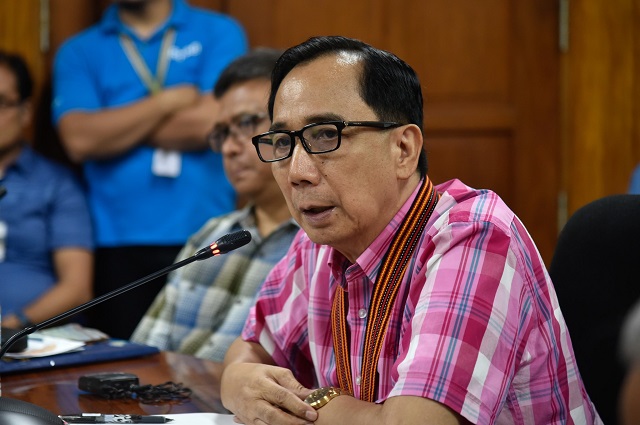
Dr. William D. Dar, acting agriculture secretary, stressed the inclusion of the private sector and the local government units in empowering farmers’ groups and for agricultural development to “stand the test of time.”
“We are sowing the seed; we are laying down a strong foundation of the kind of agriculture that we want to be. [To do this], we want to have more engagement with the farmers’ associations and cooperatives. We would elevate them as partners in an inclusive agribusiness approach,” Dar said during his visit at Philippine Rice Research Institute, Aug, 29.
In this approach, the new agriculture secretary, who prefers to be called Manong Willie, said the private sector will maintain farm services such as mechanization while the local government unit will lead project implementation.
The tripartite agreements, he said, have to be institutionalized through joint venture corporation, which will foster entrepreneurship with the private company hiring the best professionals in managing the endeavor.
“[If we’ll conduct inventory on the machines distributed through government programs, we’ll notice that many of them were only used for two years.] With the private sector coming in, they can help farmers maintain these machines. Tripartite agreement is the way forward,” the servant-leader in agriculture said.
In a related development, Dar announced that World Bank will fund the operationalization of Provincial Agriculture and Fishery Systems with USD500M. A strategy to empower agricultural extensionists, the systems entail the provincial governments to develop agriculture programs and policies within their coverage.
“I’ll see to it that the federal system in agricultural extension will happen under the framework of devolution in the delivery of services,” he said.
He also said that department managers were directed to ensure a harmonized implementation of the two main components of the National Rice Program – the Rice Competitiveness Enhance Fund (RCEF) and hybrid rice program. An RCEF coordination body was also organized for a systematic program implementation.
“[We are creating] convergence strategies for the programs not to duplicate but to compliment,” Dar, who also recognized PhilRice as top research institute, added.




